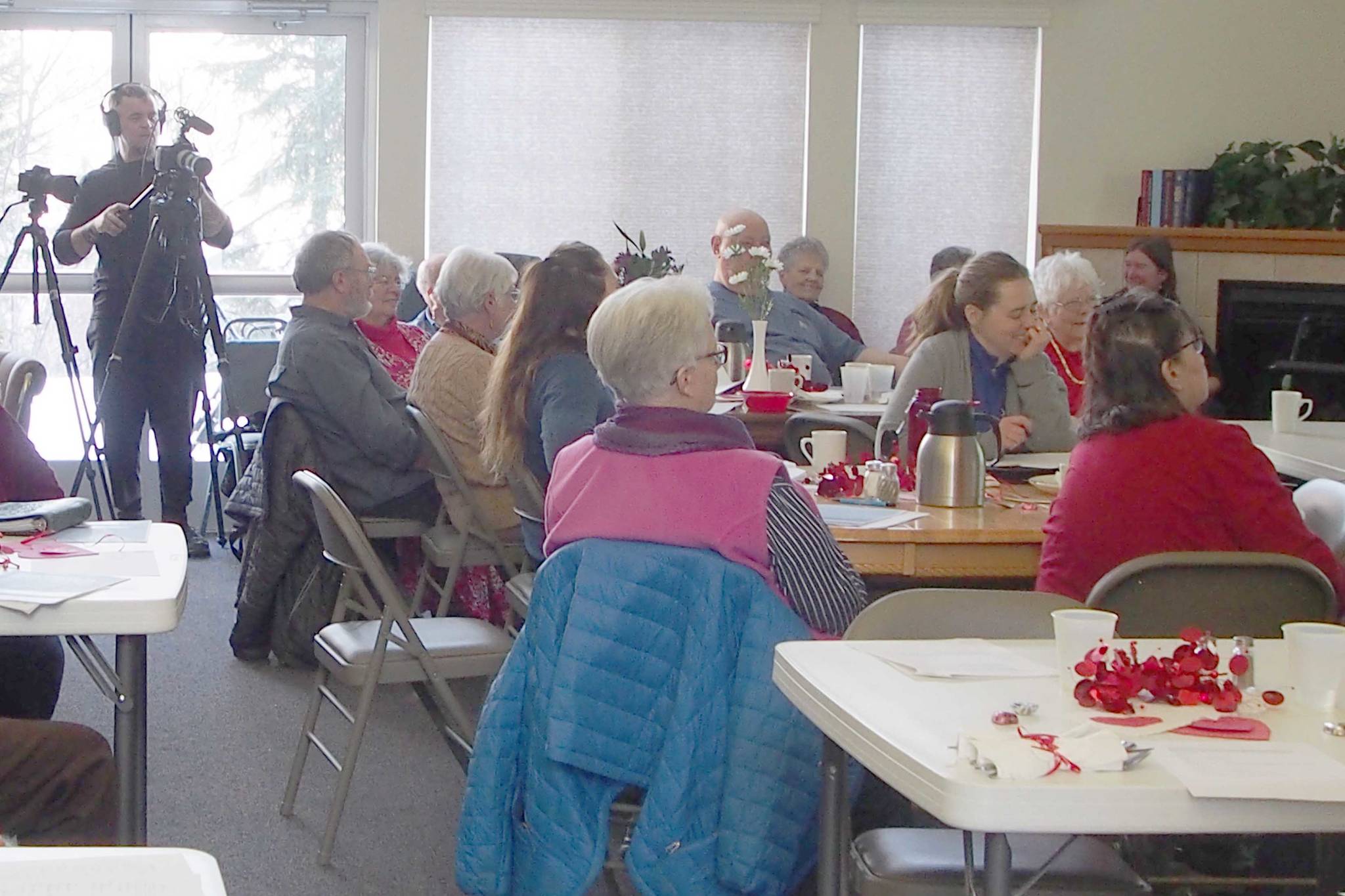By JOHN MORTON
I’ve had the privilege recently to hear what other residents think about changes they have witnessed in their lifetimes here on the Kenai Peninsula.
Working closely with a small group of professional colleagues to figure out a different way of approaching climate change, we realized there are many stories to be heard, if we would hold some “listening sessions.” So we have launched a modest effort to capture those stories, dubbed Voices of the Kenai.
Besides me, our steering committee includes Branden Bornemann (Kenai Watershed Forum), Willow Hetrick (Chugach Regional Resource Commission), Syverine Bentz (Kachemak Bay Research Reserve) and Bjorn Olson (Kachemak Bay Conservation Society). Three of our group are lifelong residents themselves, having grown up in Homer, Moose Pass and Seward.
This week we were at the Snug Harbor Senior Haven in Cooper Landing. Last month we were hosted at the Sea Otter Community Center in Seldovia. Each event was attended by at least a couple dozen engaged and informed residents of those communities.
From one woman who has lived in Cooper Landing for more than a half century, we heard that nearby alpine slopes like Cecil Rhode Mountain really had fewer shrubs and trees when she was young, an observation consistent with scientific data.
Roman Dial at the Alaska Pacific University and his colleagues published two journal articles that estimate tree line has risen 1 meter per year and shrub line 2.7 meters per year in the Kenai Mountains since the 1950s.
One longtime resident commented there is a lot less wildlife than she remembers 40 years ago, when bears, moose, porcupines, coyotes and wolves were frequently sighted from her car bumping down the Seward Highway.
Another said Kenai Lake doesn’t freeze as often as it used to, and algae now grows in coves of that lake where it had once been clear.
Several Cooper Landing residents reminisced about how they used to go “wooding” (firewood harvesting) in their trucks on Kenai Lake. Driving on the lake, skiing, snowmachining and other forms of recreation on Kenai Lake ice have diminished greatly in recent decades.
These observations are consistent with statistical models generated by the Scenarios Network for Alaska and Arctic Planning at the University of Alaska Fairbanks that forecast winters in Cooper Landing, defined by average monthly temperatures below freezing, will soon go from five months per year to only two.
This is a different way to approach sharing information about climate change. Previous local workshops that I’ve been part of over the years were well-organized efforts by universities and agencies, but focused more on providing information than gathering information.
The Kenai National Wildlife Refuge hosted Climate Friendly Refuges at the Kenai Visitor Center in 2011. The Chugach National Forest and University of Alaska Anchorage hosted Classrooms for Climate. The National Park Service hosted Climate Change Café and Climate Change Scenarios Planning.
The Chugach Regional Resource Commission hosted a Climate Change Workshop focused on Alaska Native communities in our area. Most recently, the League of Women Voters sponsored Climate Change in our Backyard here at the Kenai Peninsula College. I would characterize these efforts as taking a top-down approach.
Voices of the Kenai is taking a bottom-up approach. Michael Opheim, environmental coordinator with the Seldovia Village Tribe said, “I thought the discussions had were probably better than a better part of group discussions I’ve been involved in at the conferences I have attended over the years. I don’t recall the last time I have seen that many people attending a presentation like that.”
Michael is taking it to the next level, agreeing to work with Bret “Hig” Higman (Ground Truth Trekking) to create a local working group on climate change.
We are treating these observations almost as a legacy. With a little funding from the North Pacific Landscape Conservation Cooperative, Bjorn Olson is putting on his other hat to record these listening sessions as an award-winning filmmaker. His short film, “Alaska Thaw,” was the 2018 Winner of the Witnessing Change Video Competition held at the Colorado Environmental Film Festival.
One of the expected products of Voices of the Kenai will be production of a short film that highlights the changes collectively seen from the vantage of the Kenai Peninsula.
In April, our group hopes to go to Port Graham and Nanwalek. This fall, we’ll head over to Seward. Each session is expected to take on its own flavor, driven by participants, the local issues and the local hosts who help set this up.
One of the unexpected perks of this effort is that our group members are now honorary members of the Cooper Landing Sexy Senior Dumpster Cleaners. I think this may mean that we need to go back to Cooper Landing and help pick up trash along the roads. But this is a small price to pay to hear the stories and voices of the Kenai.
Dr. John Morton is the supervisory biologist at Kenai National Wildlife Refuge. Find more Refuge Notebook articles (1999-present) at https://www.fws.gov/Refuge/

